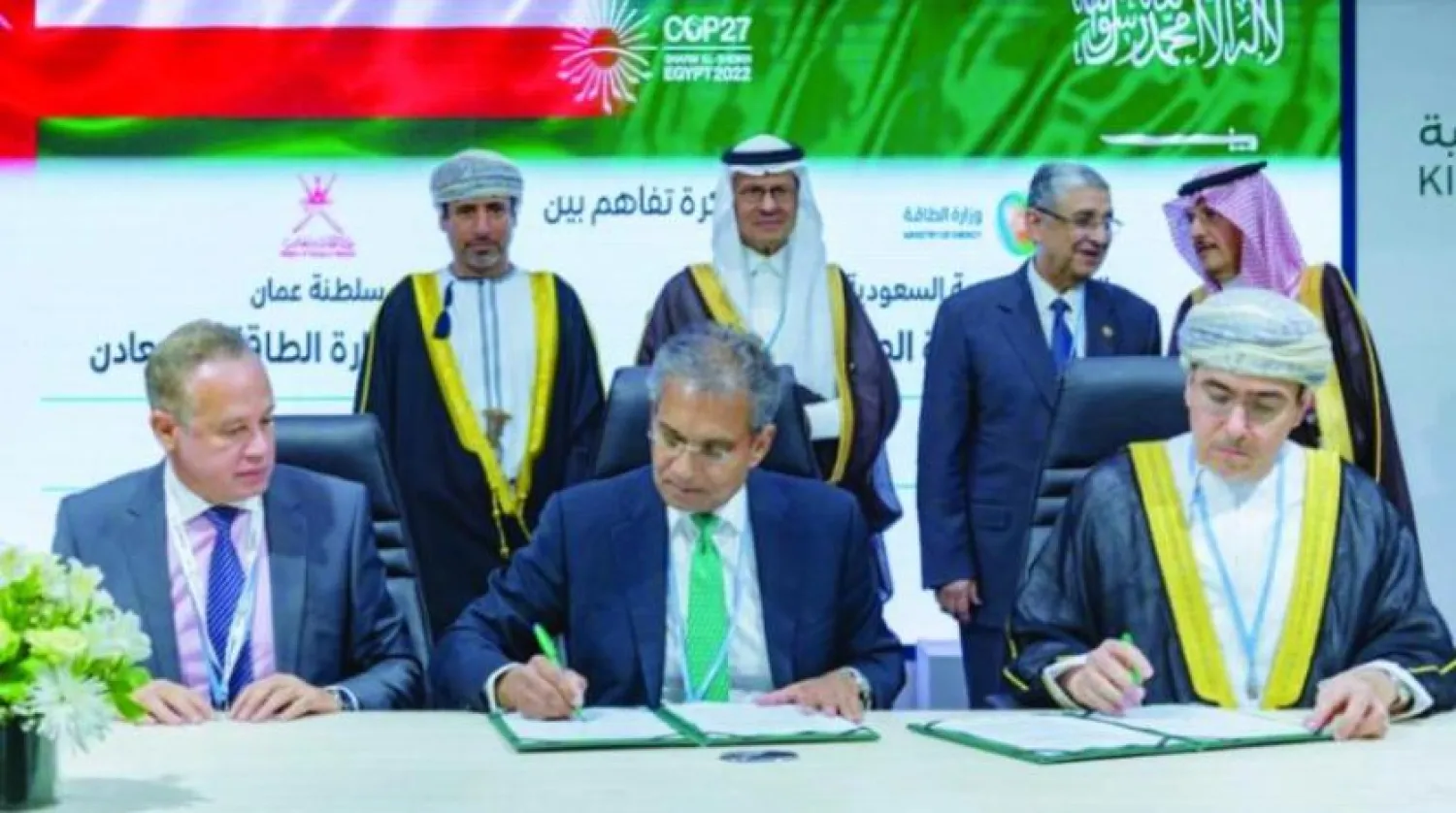Saudi Arabia and Oman signed on Tuesday a memorandum of understanding to study the possibility of investing up to 10 percent in the development, construction, and operation of the 1.1 GW Suez wind power plant project, which is valued at $1.5 billion.
Oman News Agency reported that Oman Investment Authority (OIA) signed an MoU with Saudi Arabia's Acwa Power to study the possibility of investing up to 10 percent in the Suez wind power plant project in Egypt.
The signing of the memorandum of understanding was attended by Prince Abdulaziz bin Salman, Saudi Minister of Energy, and Engineer Salem Al Aufi, Omani Minister of Energy and Minerals.
ACWA Power Company signed a memorandum of understanding with the Egyptian New and Renewable Energy Authority and the Egyptian Electricity Transmission Company on Nov. 1 to build the 10 gigawatts (GW) wind energy project.
The MoU was signed on the sidelines of the 27th Conference of the Parties to the United Nations Framework Convention on Climate Change (COP27) in Sharm El-Sheikh, Egypt.
The deal focuses on cooperation in the fields of oil, gas, electricity, and renewables. It will also facilitate cooperation on carbon capture, reused, and storage.
The MoU also includes cooperation on hydrogen as well as enhancing digital transformation in the energy field.
“We signed the MOU as it is in line with the Sultanate’s efforts to enhance joint investments with our brothers in the Kingdom of Saudi Arabia and the Arab Republic of Egypt in renewable energy projects, particularly wind power” stated Mulham Basheer Al Jarf, Acting Deputy President for Investment at OIA.
“Oman has a net zero emissions goals by 2050, and to this end, the country is developing an ambitious plan for energy transformation and decarbonization, which includes the implementation of major projects in the field of hydrogen and renewable energy,” he added.
“Suez Wind Energy was already a remarkable project because of its ambition and scale,” said ACWA Power Chairman Mohammad Abunayyan.
“The signing of this key MOU demonstrates the confidence of the investor community in ACWA Power’s expertise and capability to deliver giga-scale projects, as we continue to build upon our renewables portfolio in Egypt,” he added.
The Suez Wind Farm project, which is expected to start operations in 2026, is located close to Ras Ghareb City in the Gulf of Suez region near Jabal Al Zait in Egypt.
Power will be generated using turbines of up to 220 meters in addition to several latest advanced technologies.
The plant is expected to operate at the highest level of efficiency and will generate enough power for approximately one million residential units and reduce about 2.4 million tonnes of carbon emissions annually.
It should be noted that OIA, represented by its subsidiary OQ Group, signed a joint development agreement for the Oman Hydrogen Project with Saudi Company ACWA Power last May to establish an ammonia production plant using green hydrogen and renewable energy sources in Oman.









